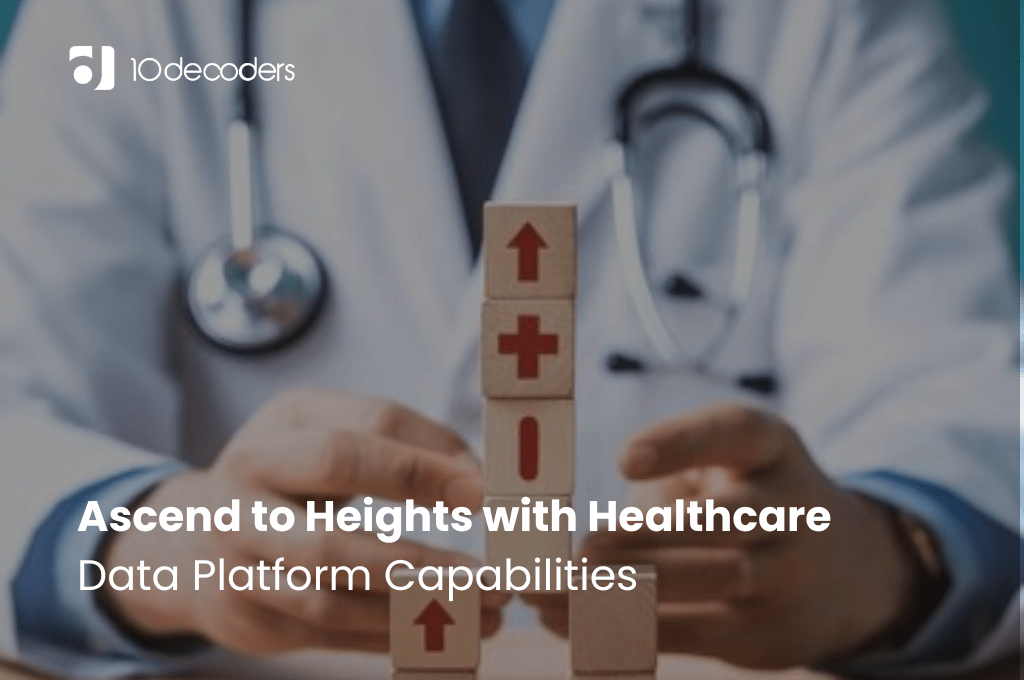Ascend to Heights with Healthcare Data Platform Capabilities
Introduction
The healthcare industry is undergoing a rapid digital transformation in recent times, mirroring trends seen across various sectors. At the heart of this shift lies the healthcare data platform, a pivotal tool that enables organizations to navigate this new digital landscape. But what exactly are the essential capabilities of such a platform, crucial for organizations to thrive amidst fierce competition in the digital era? Let’s delve into the key features that empower healthcare institutions to deliver superior care, optimize costs, and maintain their competitive edge.
Integrating Domain-Specific Terminologies for Informed Decision-Making
First and foremost, a robust healthcare data platform must possess the capacity to handle domain-specific data unique to the healthcare sector. This entails the ability to comprehend and integrate intricate medical coding systems such as CPT codes, John Hopkins ACG, LOINC, and SNOMED CT, alongside benchmarking data and more. Effective mapping of these terminologies and curated data models into raw data is imperative. Additionally, seamless integration of data from diverse sources, including partner organizations and vendors, is essential for comprehensive insights and informed decision-making.
Managing Integration Costs for Effective Healthcare Data Orchestration
In crafting a data platform, healthcare executives must consider the continuous integration expenses and obstacles. Transitioning from local database management systems to expansive big data infrastructure necessitates significant investments in engineering, development, and deployment proficiencies. Seamless integration becomes imperative to harmonize diverse components within the system, fostering unified functionality. Genuine orchestration not only enables the extraction of actionable insights from extensive data repositories but also propels operational efficiency and strategic decision-making.
Empowering Healthcare Platforms with Streamlined Usability
The usability of a data platform hinges on its seamless integration into the daily operations of healthcare organizations. Access to patient engagement tools, decision support dashboards, and point-of-care integration streamlines workflows and ensures relevance, timeliness, and usability of data and information. Deep integration within the internal ecosystem and collaboration with external stakeholders, including partner organizations and vendors, are vital for maximizing the platform’s utility and effectiveness.
1. Compliance and Security Measures
Healthcare data platforms must prioritize compliance with industry regulations and security protocols in addition to functionality. Given the sensitive nature of healthcare data, adherence to standards such as HIPAA is non-negotiable. Robust security measures, including encryption, access controls, and regular audits, are imperative to safeguard patient confidentiality and maintain trust. Compliance monitoring tools and mechanisms ensure ongoing adherence to evolving regulatory requirements, mitigating risks and vulnerabilities.
2. Enhanced Patient Engagement and Experience
Beyond operational efficiency, healthcare data platforms play a crucial role in enhancing patient engagement and experience. Access to patient portals, telehealth solutions, and personalized health insights empowers individuals to take an active role in their healthcare journey. Seamless integration with electronic health records (EHRs) facilitates continuity of care, enabling healthcare providers to deliver personalized and timely interventions. By prioritizing patient-centric design and functionality, data platforms foster meaningful interactions and promote better health outcomes.
3. Advanced Analytics and Predictive Insights
Leveraging artificial intelligence (AI) and machine learning (ML) algorithms, organizations can uncover hidden patterns, trends, and correlations within large datasets. Predictive analytics enables proactive risk stratification, early intervention, and personalized treatment plans, ultimately improving clinical outcomes and reducing healthcare costs. Augmented visualization tools empower stakeholders to derive actionable insights from complex data, driving innovation and continuous improvement.
4. Collaborative Research and Innovation
By facilitating data sharing and interoperability, healthcare platforms enable multi-institutional research initiatives, clinical trials, and population health studies. Real-time access to aggregated patient data fuels scientific discovery, accelerates drug development, and informs evidence-based practice guidelines. Collaborative platforms also foster cross-disciplinary collaboration between clinicians, researchers, and data scientists, driving innovation and breakthroughs in healthcare delivery and outcomes
In a nutshell
A comprehensive healthcare data platform is indispensable for organizations striving to excel in today’s digital healthcare landscape. From managing domain-specific data to orchestrating seamless integration and enhancing usability through holistic integration, the capabilities of such platforms are paramount. By leveraging advanced technologies and fostering collaboration across the healthcare ecosystem, organizations can harness the power of data to drive innovation, improve patient outcomes, and maintain their competitive edge in an ever-evolving industry landscape. Embracing compliance and security measures, enhancing patient engagement, leveraging advanced analytics, and fostering collaborative research are integral components of a robust healthcare data platform strategy. As organizations continue to adapt to the evolving healthcare landscape, investing in a sophisticated data platform is not just a strategic imperative but a critical enabler for success in the digital era.



